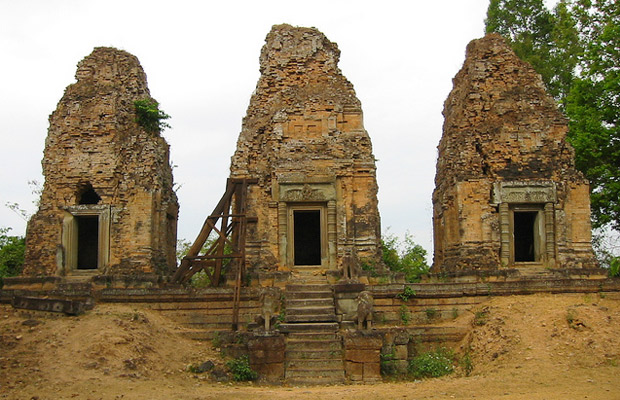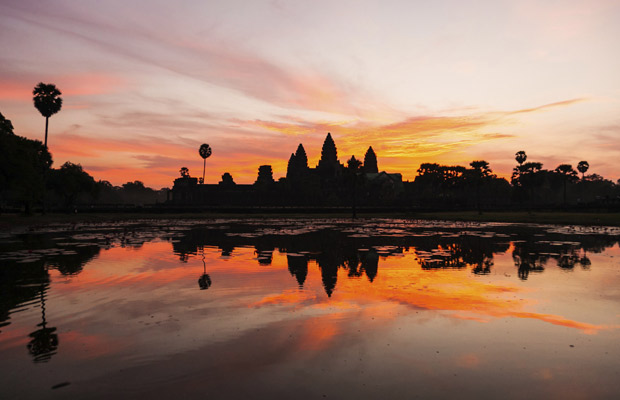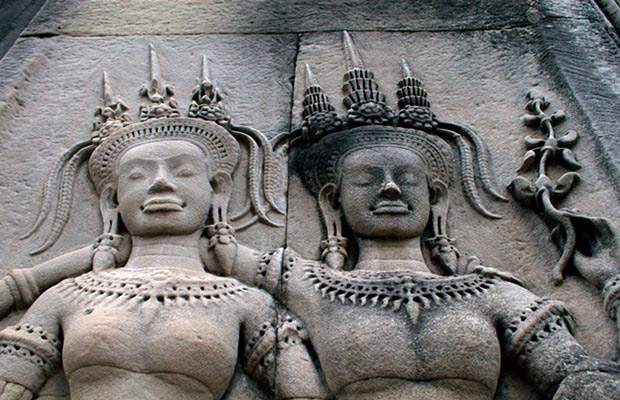Bat Chum
Bat Chum (Khmer: ប្រាសាទបាទជុំ) is a small temple built by Kavindrarimathana, a scholarly Buddhist minister of the Khmer king Rajendravarman [1]: 116 in the middle of the tenth century. It is located about 400 meters south of Srah Srang in Angkor, in Cambodia. It consists of three brick towers in line (in precarious conditions at present), standing on the same platform, surrounded by an enclosure and a moat, with a single gopura to the East.
Bat Chum (Khmer: ប្រាសាទបាទជុំ) is a small temple built by Kavindrarimathana, a scholarly Buddhist minister of the Khmer king Rajendravarman [1]: 116 in the middle of the tenth century. It is located about 400 meters south of Srah Srang in Angkor, in Cambodia. It consists of three brick towers in line (in precarious conditions at present), standing on the same platform, surrounded by an enclosure and a moat, with a single gopura to the East.
On the sledgehammers there are Buddhist inscriptions mentioning Kavindrarimathana, the "architect" (or building officer) who built Srah Srang, East Mebon and perhaps planned the mountain of the temple of Pre Rup. [2] The latter was dedicated in 960 BC, shortly before the architect's death. There were houses, a Buddhist monastery located near the temple, but these wooden structures disappeared for a long time.
During the excavations in 1952, in the north and central towers were found slabs showing a yantra, which George Coedes was able to reconstruct and bind with only extreme difficulty to the Buddhist deities mentioned in the jet carriers.
In each tower there is a different inscription signed by three different people. The last verse of all three names also elephants as "dike dissectors".
View Mores Temple Guide

Siem Reap Bird Watch Day Tour
Find your bird specialist at your hotel and proceed with an air-conditioned car or minivan to the boats area. Transfer to a mini-boat, a special flat-bottom boat driven by experienced local drivers. ...
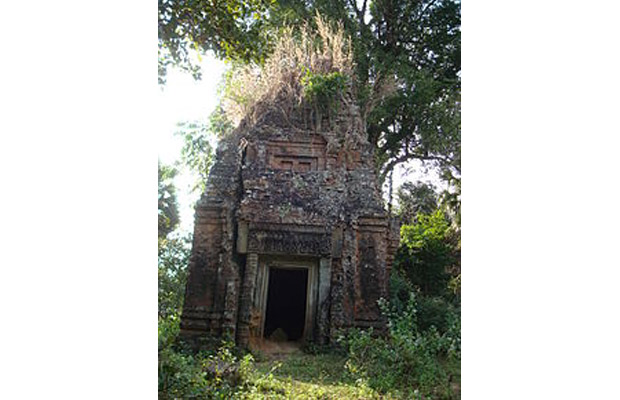
Prasat Leak Neang
Prasat Leak Neang (Khmer's "Tower of the Hidden Virgin") is a small, 200 m east of Pre Rup, lying Prasat in Angkor. According to an inscription, the building dates from 960 and was built under ...
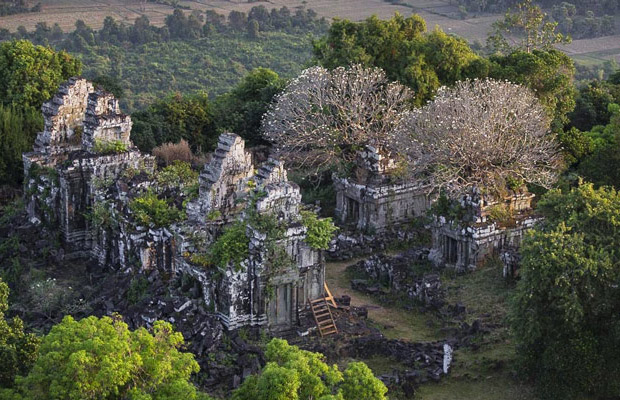
Phnom Bok
Phnom Bok (Khmer: ភ្នំ បូក) is a hill in the northeast east of Baray in Cambodia, with a prasat (Khmer: ប្រាសាទភ្នំបូក) of the same name built on it. It is ...
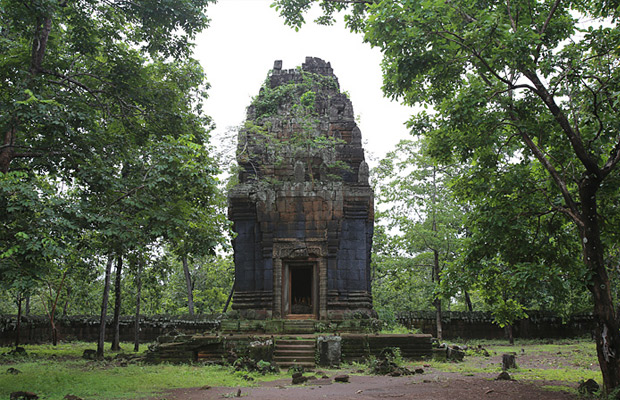
Prasat Neang Khmau
Neang Khmau means the "Black Lady" in Khmer, probably referring to the fire-marked surface of the tower. Like many of the sanctuaries of Koh Ker, the temple was dedicated to ...
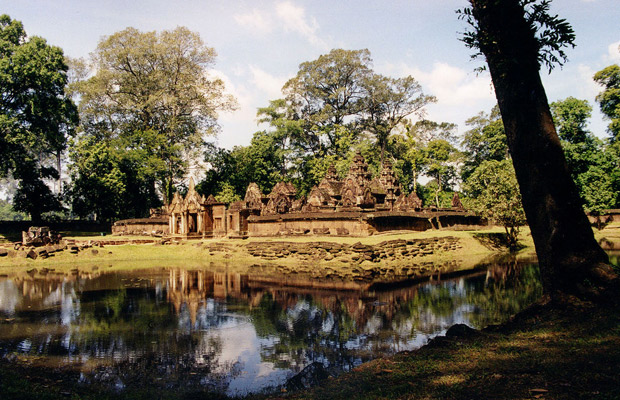
Banteay Srei Tours
The tenth-century temple of Banteay Srei is known for its intricate decoration carved in pinkish sandstone that covers the walls like tapestries. This site guarantees all the time that your schedule ...
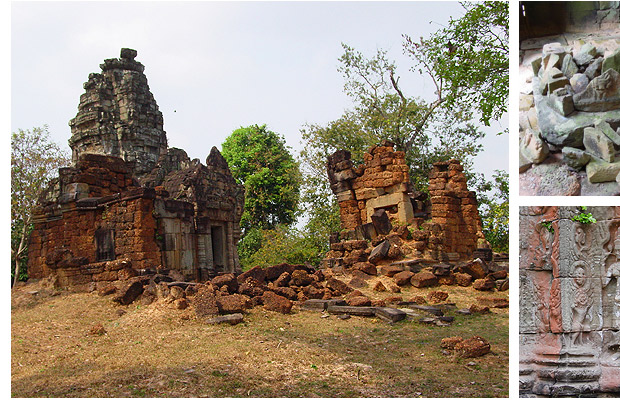
Prasat Prei
Small temple ruins unite in a forest setting near Neak Pean. Remains of a gopura, the central tower and halls, and the vestiges of a library and surrounding wall. Some apsara and lintel sculptures. A ...
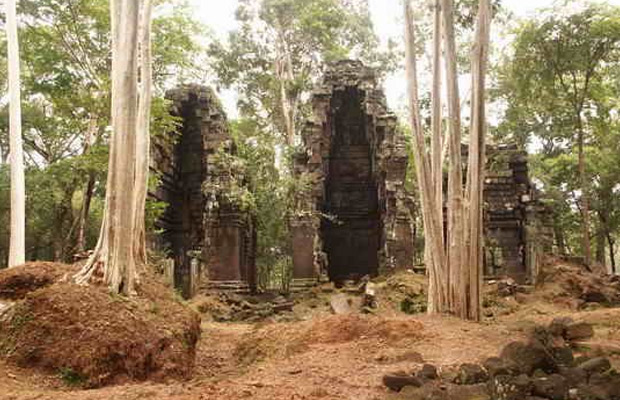
Prasat Chrab
This temple has two circular concentric walls. Three large laterite towers standing in a line rise in the center. Facing these are the remains of two prasats of ...

Phnom Kulen
The Phnom Kulen mountain range is located 30 km north of Angkor Wat. Its name means "mountain of lychees". [3] There is a sacred site at the top of the hill. Phnom Kulen is considered a sacred ...
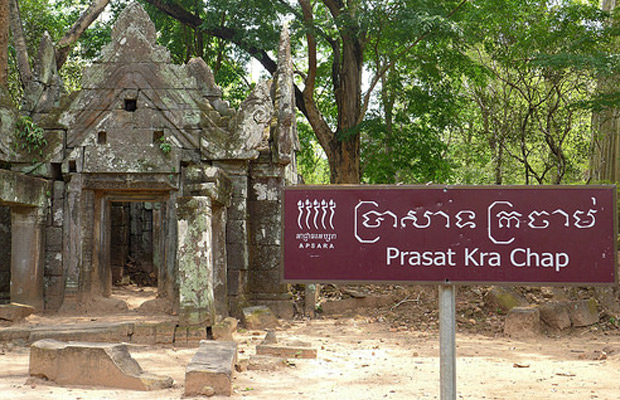
Prasat Kra Chap
Prasat Kra Chap is a compact temple comprising two rather well preserved gopuras and the ruins of five towers arranged in a quincun. Thanks to the surviving inscriptions on the doorframes, we know ...
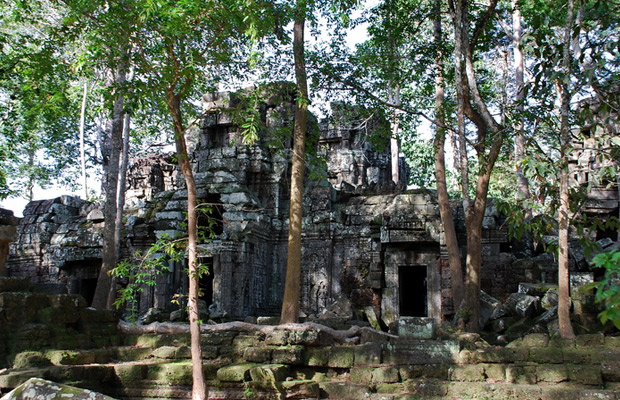
Ta Nei
Ta Nei is a 12th century stone temple located in Angkor, Cambodia. Built during the reign of King Jayavarman VII, it is located near the northwest corner of East Baray, a large sacred reservoir. It ...
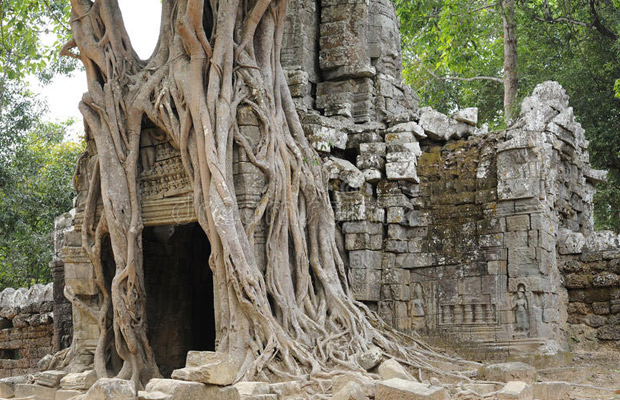
Ta Som
Ta Som is a small temple in Angkor, Cambodia, built at the end of the 12th century for King Jayavarman VII. It is located northeast of Angkor Thom and east of Neak Pean. The King dedicated the temple ...
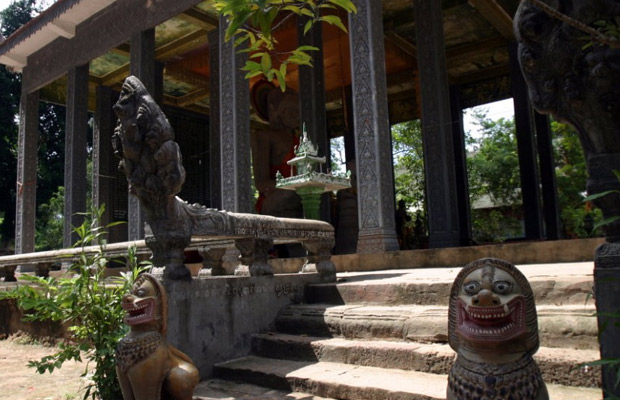
Wat Tang Tok
Wat Tang Tok is a small monastery inside Angkor Thom, not far from Victory Gate, north of Vihear Prampil Loveng. During an Angkorian era, Wat Tang Tok housed a laterite shrine with sandstone ...



